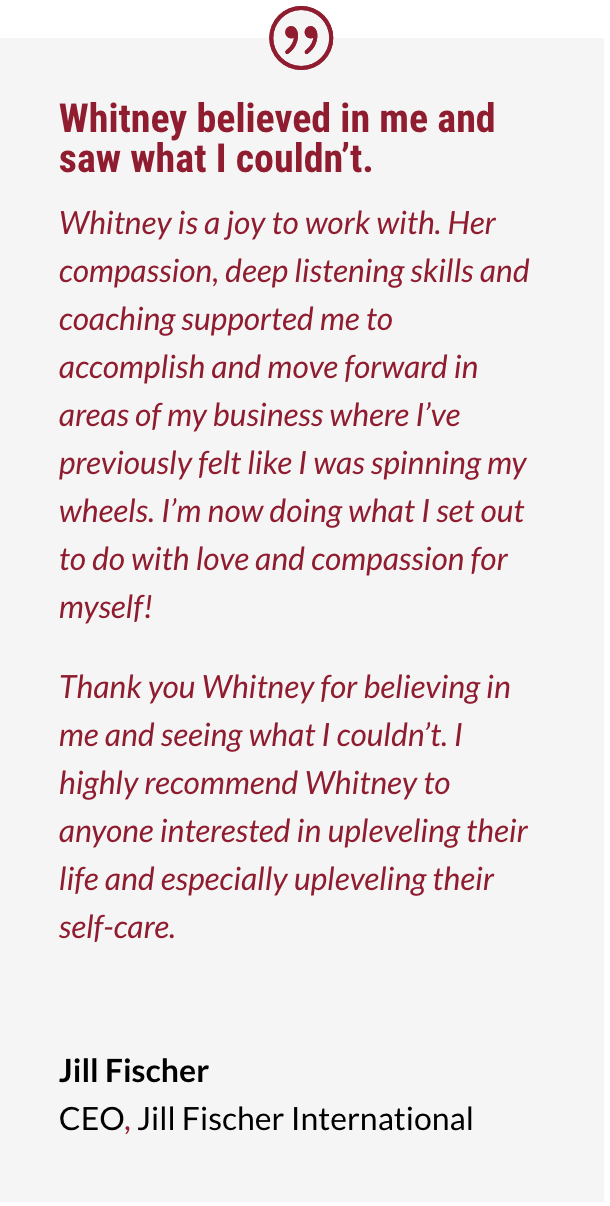Burnout, Self-Care
We all have off days from time to time.
But running the risk of getting fired from your job because you keep forgetting your commitments is especially frightening.
So, too, is being unable to solve routine life challenges without a huge amount of effort.
Some days you’re so fearful and overwhelmed, you have no choice but to let the tears come. Then you dry your eyes, blow your nose, and carry on.
I get it. I’ve been there. So I know that you don’t have to live your life being forgetful and unfocused.
Let me explain.
The Common Root Cause Of Forgetfulness and Inability To Focus
Most people don’t realize this, but these two symptoms have a common root cause: poor quality of sleep.
How can this be?
When you consider that even in the short term, a lack of adequate sleep can:
- impair your judgment,
- affect your mood,
- undermine your ability to learn and retain information; and,
- increase your risk of serious accidents and injury,
you see how poor sleep can easily lead to chronic forgetfulness and inability to focus.
In fact, Harvard’s Division of Sleep Medicine tells us that “the cost of poor sleep is much greater than many people think and may have profound consequences for our long-term health, resulting in:
- an increased risk of chronic disease,
- obesity,
- diabetes,
- cardiovascular disease, and
- early mortality.”
So a major medical facility urges us to treat sleep as a priority, rather than a luxury, as this may be an important step in preventing a number of chronic medical conditions – including full-on burnout.
Sleep is important because it’s the only time your body has to recharge and recuperate. When you get too little restful sleep, your ability to concentrate and remember can be affected.
Are You Short-Changing Yourself On Sleep?
A survey by the National Sleep Foundation revealed that over two-thirds of women associate their sleep problems with stress. Yet, over half of the women polled said that sleep is the first thing they give up when they get overscheduled. Sound familiar?
Even when you’re looking for ways to create more time in your busy schedule, the last thing you should sacrifice is sleep. Making sure you get good sleep is the key to healing your forgetfulness and inability to focus.
The Key Is To Prioritize Your Sleep
When I couldn’t focus or rely on myself to remember important tasks, the key step I took to bring myself back was re-prioritizing my sleep. When I did, my brain fog and forgetfulness improved. I was able to start living my life again.
My favorite way to get a restful night’s sleep is to practice relaxation techniques. You deliberately relax your body so that relaxation becomes a habit, easing your entry into sleep.
These techniques include:
- Meditation
- Imagining you’re in a beautiful place in nature
- Listening to a guided relaxation audio recording
- Scanning your body (focus on relaxing each body part starting at your feet and working your way up to your head)
- Thinking about all the things in your life that you are grateful for
I use relaxation techniques like guided meditation, guided imagery, and body scans to get more optimal sleep. I also plan in advance what time I will go to sleep. I set the intention of getting 7-9 hours of sleep each night and then set an alarm to remind me when it’s time to get ready for bed.
I offer additional tools to assist you in getting a restful night’s sleep in my Deep Sleep Blueprint: A Magic Rest & Relief Formula. Click here to get the Deep Sleep Blueprint free.
Why not show yourself how much you love yourself by putting your own self-care first? When you prioritize yourself, you can then be the great mom, wife, partner, boss, daughter, and sister that you desire to be.
Is It Time To Take Action?
Pause for a moment and ask yourself, with all good intent, if you may be sabotaging your health.
If the answer is yes, take some time to reflect on how you can re-prioritize your well-being. There’s no reason for a bright, vibrant woman like you to live your life as less joyful and capable than you truly are.
It may be time to make a change – and aren’t you worth it?
Don’t let chronic forgetfulness and inability to focus get the upper hand.
And if you need a helping hand, sign up for a complimentary Break Free From Burnout session.
In this 60-minute consultation you’ll:
- Get simple and practical tips for how to break free from your burnout symptoms
- Create a clear and compelling vision of the burnout-free life you want
- Tap into greater energy and inspiration
- Explore how having a partner on your journey will provide a shortcut to all that you desire.
>>> Click here now to schedule your complimentary session.
Burnout, Self-Care
Here’s the thing:
It’s almost too easy in our culture to…
Wear yourself down to a frazzle.
Feel responsible for everything.
And think it’s your job to change the world.
It’s as if everyone – every single person – is depending on you…
Or so you tell yourself.
A Brush with Burnout
Burnout is what happens when you go full speed under constant stress until you’re merely a shell of your former self.
Your entire outlook is one of scarcity.
There’s never enough time… never enough energy to do everything.
You’re never good enough… never accomplished enough.
You feel guilty trying to grab a few hours of sleep, even though you’re so tired you can scarcely add two plus two and get four. There’s always more to be done. So you push yourself day after day until you want to cry from exhaustion.
Until, finally, there’s a complete scarcity of you – of your energy, health, well-being, and vitality.
Here’s the thing though, your exhaustion and fatigue are actually important clues for you to pay attention to: these are symptoms of burnout. If you keep pushing forward, attempting to push through these symptoms, well… let’s just say, it could get ugly like it did for me…
Fatigue is one of the signs of burnout. And it’s worth paying attention to because it might not be plain old tiredness that’s wearing you down.
Dismissing Exhaustion as ‘Just Tired’ Is a Mistake
Because fatigue can be a sign of burnout, it’s important to take a moment right now and assess your “tiredness” over time.
- Do you lack energy and enthusiasm?
- Do you feel tired most days yet are able to push through?
If you answered yes to either of those questions, then you’re in the early stages of burnout-induced fatigue.
- Do you feel utterly wiped out?
- Are you struggling with depression or hopelessness?
- Are you having a hard time making decisions?
Responding yes to questions 3-5 indicates that you are in the latter stages of burnout. Either way, I would suggest taking action on the tips below before you get too far down the exhaustion path. I’ve been there, and it’s not pretty.
You Need More Than One Good Night’s Sleep
One good night’s sleep feels terrific, but let’s face it: One night of restful sleep won’t go a long way toward helping you recover from what may be burnout-induced fatigue. What we’re going for instead is consistently getting a restful good night’s sleep.
9 tips for getting a good night’s sleep every night:
- Keep a consistent sleep schedule (Yes, even on weekends or days off!), so your body can find its natural rhythm and settle into a regular sleep-wake cycle
- Go to bed early enough for you to get at least seven hours of sleep
- Stop using electronic devices at least half an hour before bedtime
- Avoid drinking or eating caffeine in the afternoon or evening (Remember, dark chocolate has caffeine!)
- Drink sparingly before bedtime so you’re not running to the bathroom throughout the night.
- Establish a relaxing 15-30 minute bedtime routine to quiet your mind and soothe tension in your body (i.e. a warm bath, meditation, visualization, soft music)
- Keep your room dark and cool
- Wear a sleep mask to block ambient light
- Use your bed only for sleep or sex, so your body and mind recognize it as strictly a place for rest and intimacy.
You can learn more about the vicious cycle of sleep and stress in my Deep Sleep Blueprint: A Magic Rest & Relief Formula. You’ll learn how getting caught up in this cycle can set you on the path to burnout and how to avoid this. Click here to get the Deep Sleep Blueprint free.
An Unusual Approach to Overcoming Fatigue
In addition to getting a great night’s sleep every night, take time to play! Even if it feels hard to imagine having the energy for this or it seems self-indulgent, “play can boost your energy and vitality and even improve your resistance to disease, helping you function at your best.”
George Bernard Shaw said it best: “We don’t stop playing because we grow old; we grow old because we stop playing.” Play will nurture your soul, bring you closer to the joyful person you were meant to be, and ease stress.
What do you love to do? And when was the last time you let yourself enjoy what you love?
Are You Ready to Feel Rested Again?
Now that you know these tips, you can be in action with a few at a time and see how your sleep changes.
You now know…
- Why getting consistent, quality sleep is vital for your well-being
- The steps you can take to get the revitalizing sleep that will let you rediscover your natural optimism and joy
- How important it is to be in action
Once you do these things and are sleeping better, you can…
Enjoy playing with your family and friends.
Feel hopeful and happy about life.
Make decisions with ease.
Wake up refreshed, eager for the delectable day ahead, and brimming with energy and humor.
Now you have a list of rejuvenating practices you can bookmark and come back to when you need a refresher.
Now is the time to start getting a good night’s sleep. Tonight.
Are you ready?
It’s snooze time!




